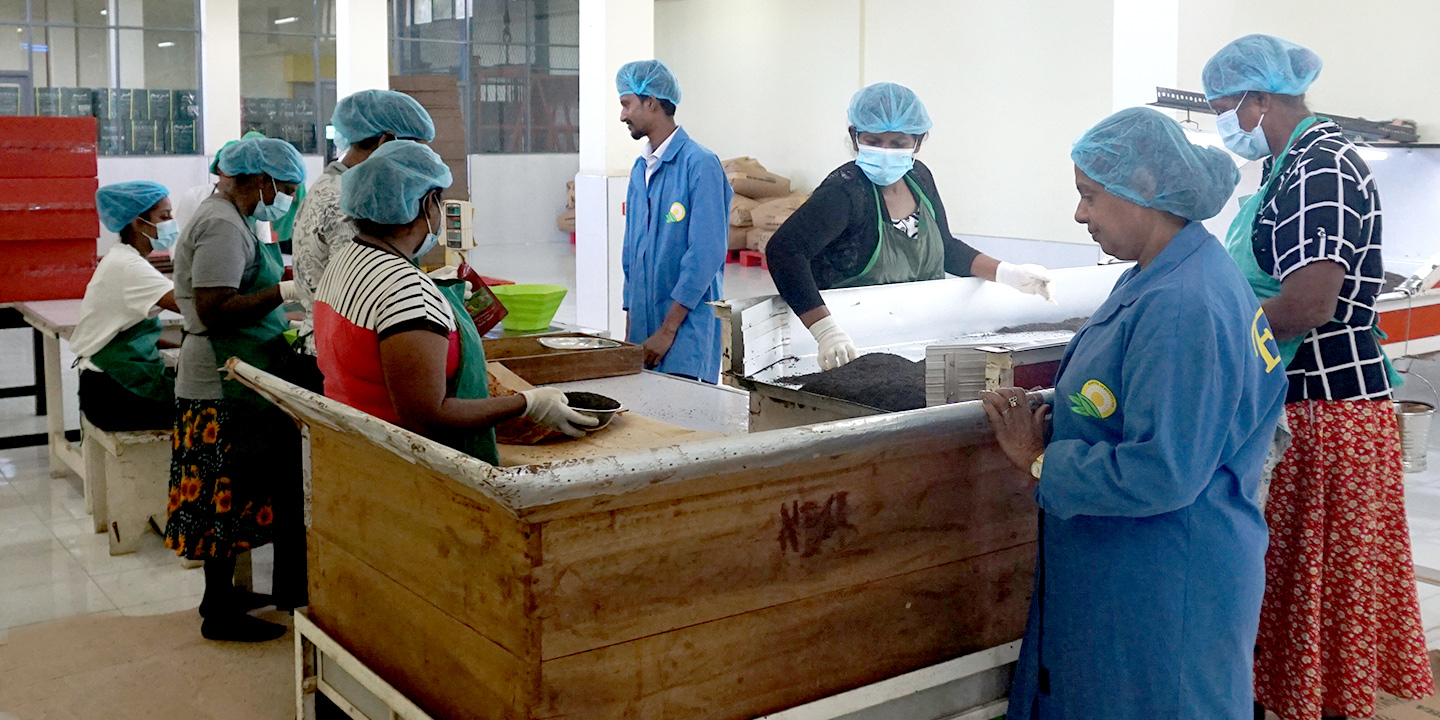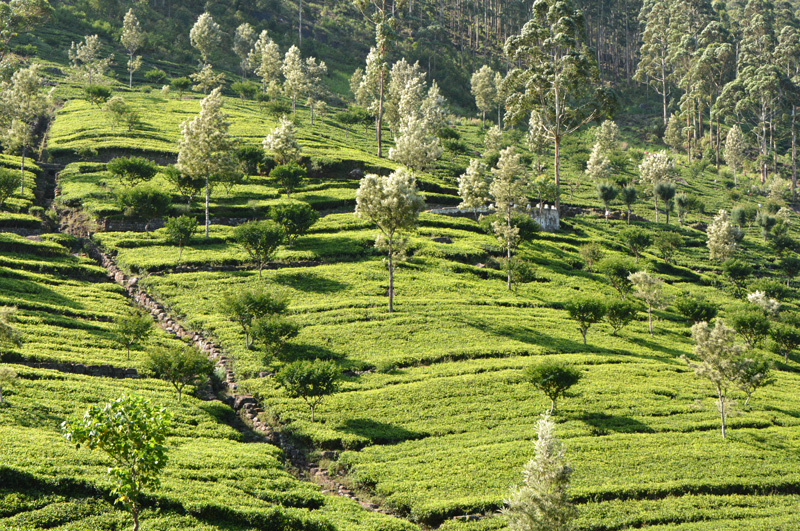
Tea Cultivation & Estates
The lush green tea plantations in the central highlands thrive in the cool climate and fertile soil, producing premium black, green, and white teas. Skilled workers hand-pick the finest leaves, ensuring quality and preserving traditional methods.
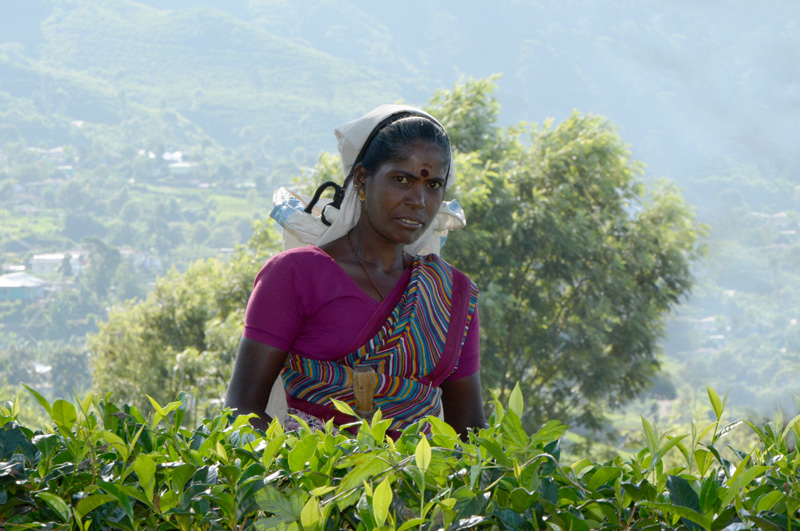
Tea Factories
Located in regions like Nuwara Eliya, Kandy, Badulla and low grounds of Ratnapura, Matara and Kaluthara. These factories are where freshly plucked tea leaves are processed into the final product. The process typically involves withering, rolling, fermenting, drying, and sorting the leaves to produce various grades of tea, including the globally acclaimed Ceylon Tea. Many factories, some dating back to the colonial era, still employ traditional techniques alongside modern machinery to ensure quality and consistency.

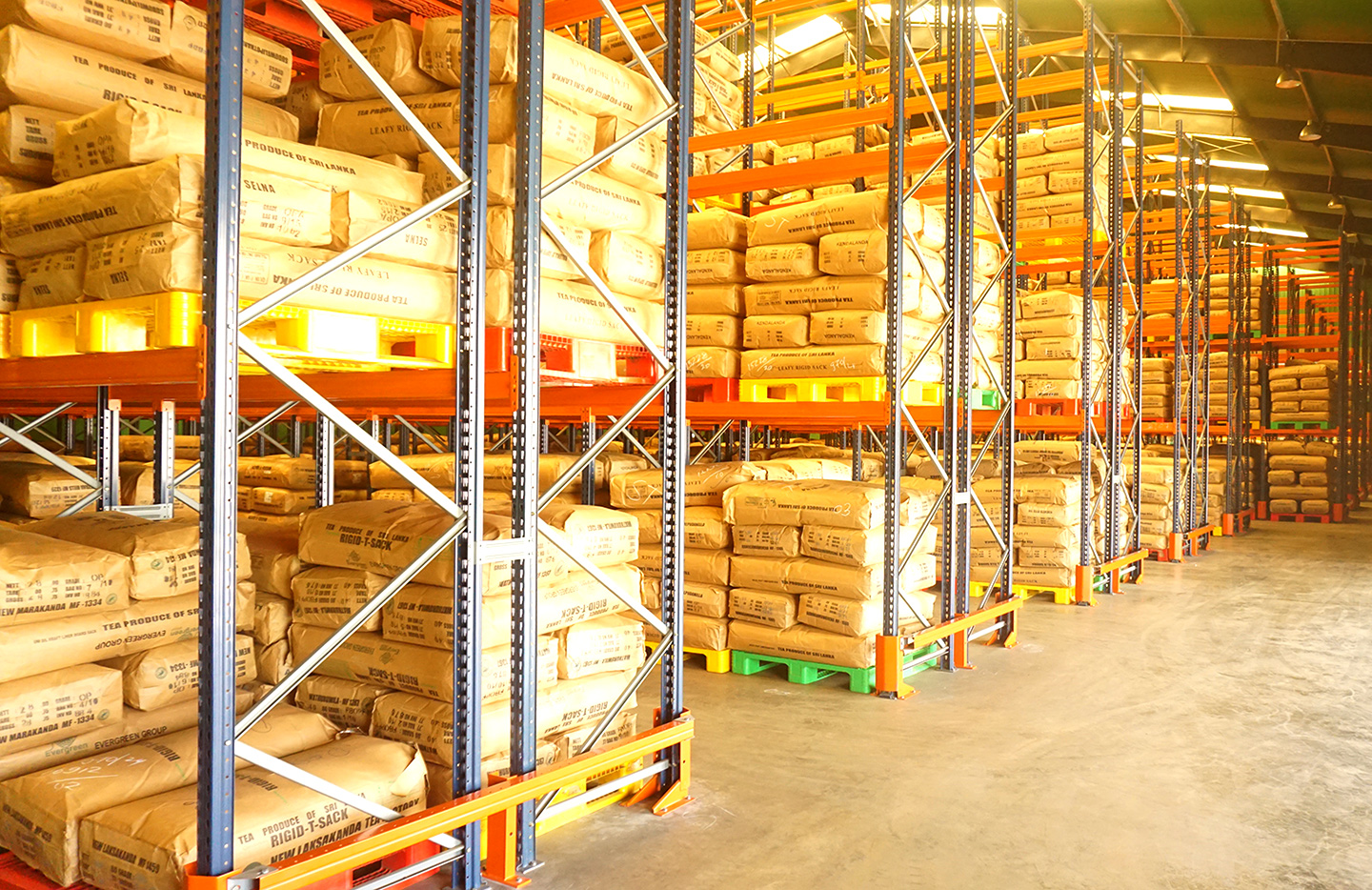
Stores
Storing tea in paper bags can be an effective and eco-friendly option, but it requires proper care to maintain the tea’s quality. Paper bags are lightweight and biodegradable, making them a sustainable choice for packaging. However, they may allow air, moisture, and odors to penetrate, which can affect the tea’s freshness and flavor over time. To protect the tea, paper bags with a protective inner lining, such as foil or wax, are ideal. For best results, store the tea in a cool, dry, and dark place, away from strong smells or humidity. Proper storage ensures the tea retains its rich aroma and taste for an extended period.
Tea Purification
The tea purification process is a critical step in ensuring that tea is clean, safe, and of high quality before it reaches consumers. After harvesting, tea leaves are carefully inspected and sorted to remove any foreign matter, such as stems, dust, or debris. Advanced purification methods, such as air cleaning systems, sieves, and magnetic separators, are often employed in tea factories to eliminate impurities. Some high-grade teas may also undergo hand-sorting to ensure premium quality. This process not only enhances the tea’s flavor and aroma but also ensures compliance with safety and hygiene standards.
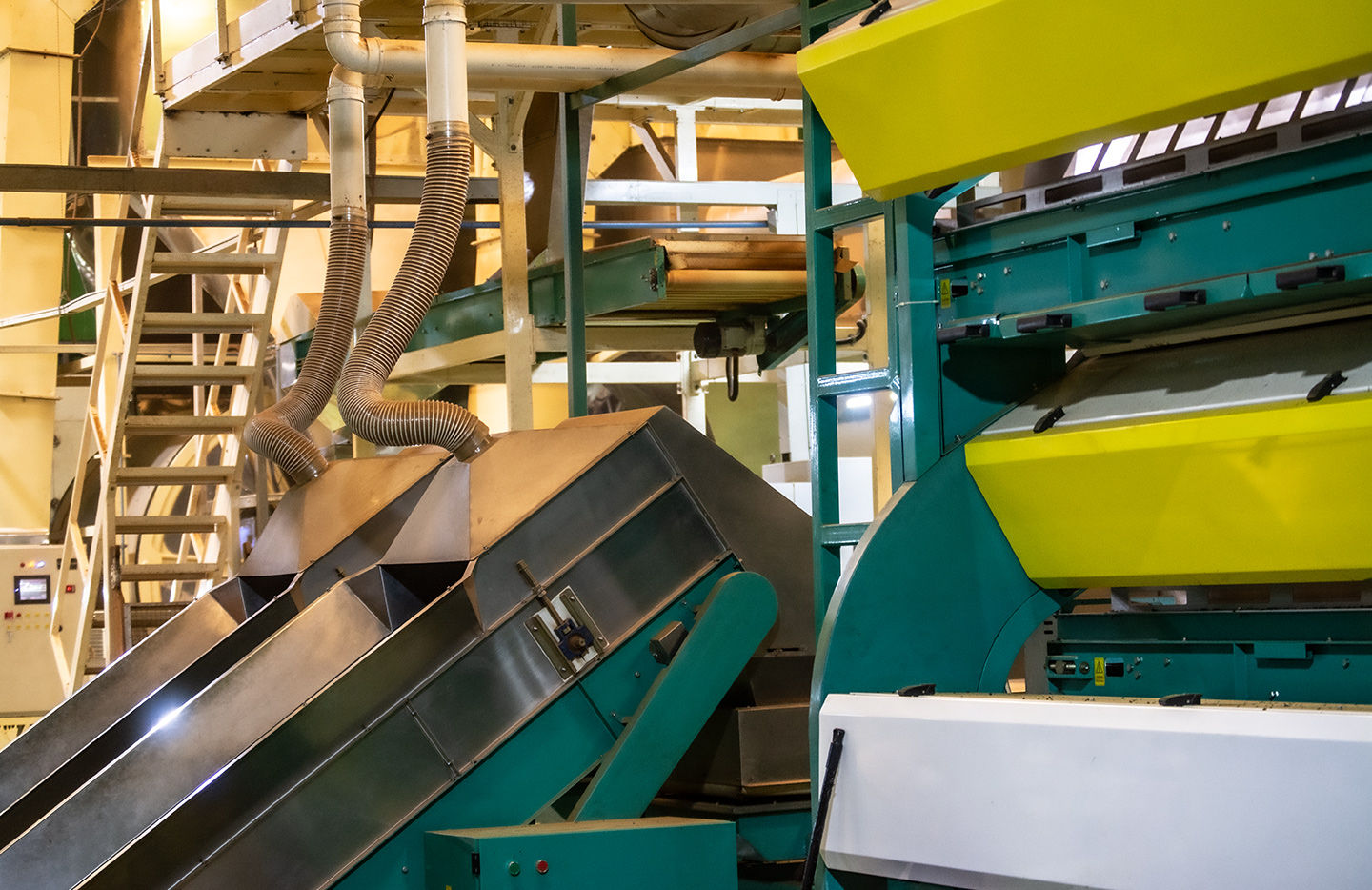
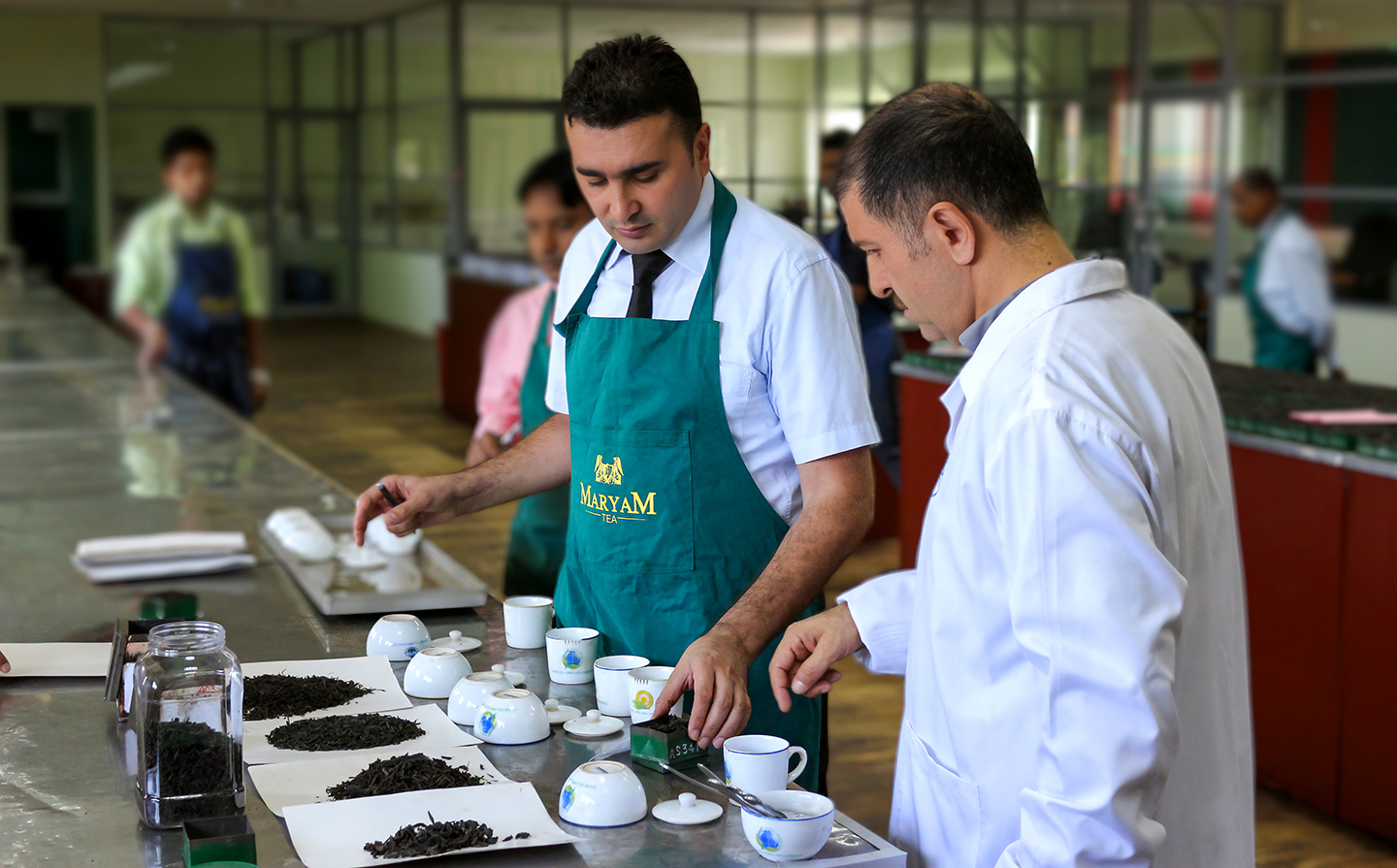
Testing & Quality Control
Tea testing is a crucial process in the tea industry, used to evaluate the quality, flavor, aroma, and overall characteristics of tea before it is packaged and sold. Performed by skilled tea tasters, the process involves brewing a small sample of tea under controlled conditions to ensure consistency. The taster assesses various aspects, such as color, strength, aroma, and taste, while also identifying unique flavor notes or defects. This meticulous evaluation helps classify teas into different grades and ensures they meet quality standards. Tea testing is not only essential for quality control but also plays a role in blending, as it helps create balanced flavors by combining teas from different regions. This process guarantees that every cup of tea delivers a delightful experience to consumers.
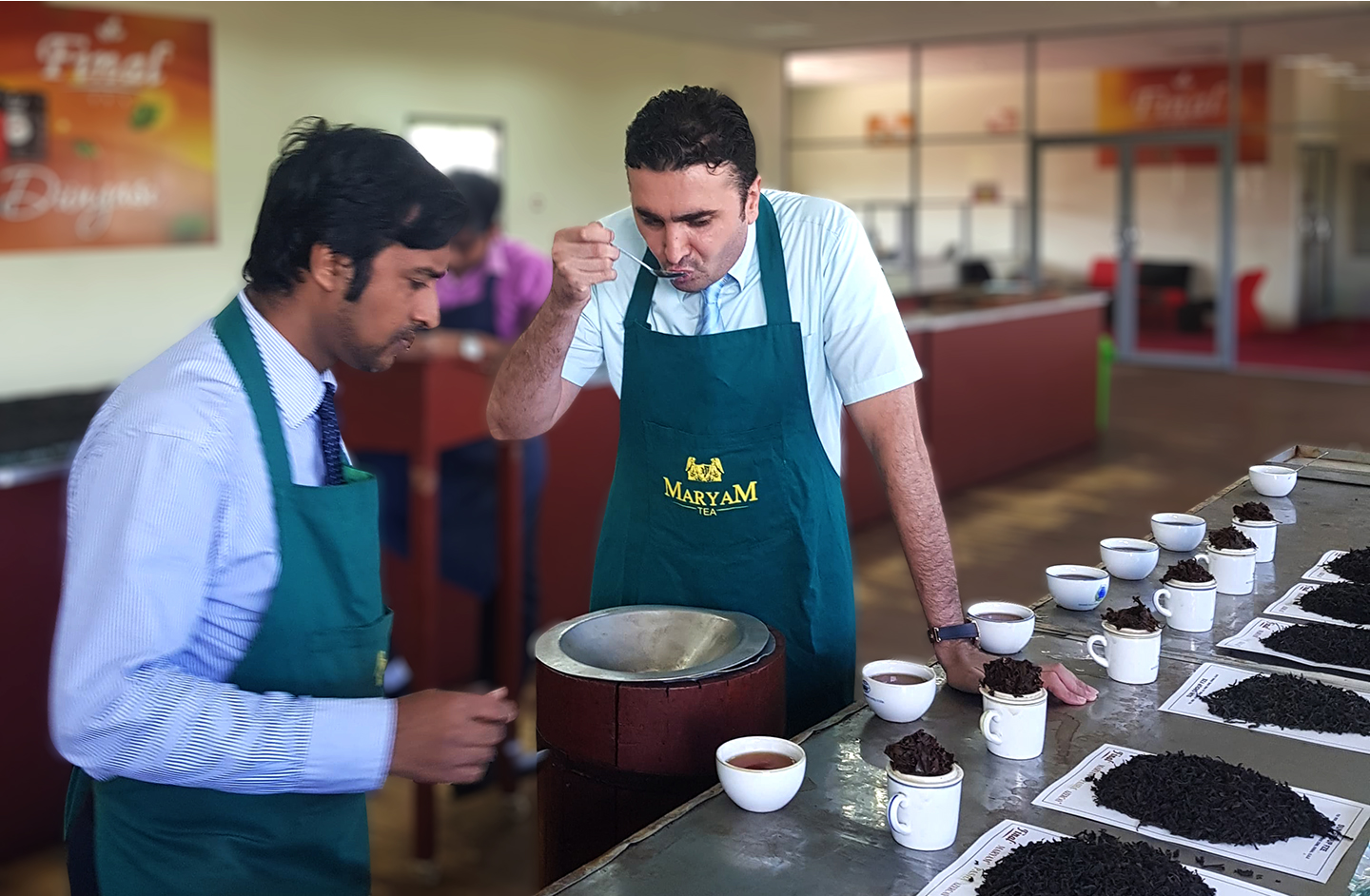
Packaging
Tea packing is a vital stage in the tea production process, as it ensures the tea’s freshness, quality, and aroma are preserved until it reaches the consumer. Different packaging materials, such as paper, foil, plastic, and biodegradable materials, are used depending on the type of tea and market preferences. High-quality tea is often packed in airtight containers or vacuum-sealed pouches to protect it from moisture, air, and light, which can degrade its flavor. For convenience, tea bags are commonly packed in individual sachets or boxes, while loose-leaf tea is packaged in tins or resealable bags. Modern tea packing also emphasizes branding, eco-friendliness, and aesthetic appeal, making it not only functional but also an important part of the tea’s presentation and marketability.
Bulk Packaging
